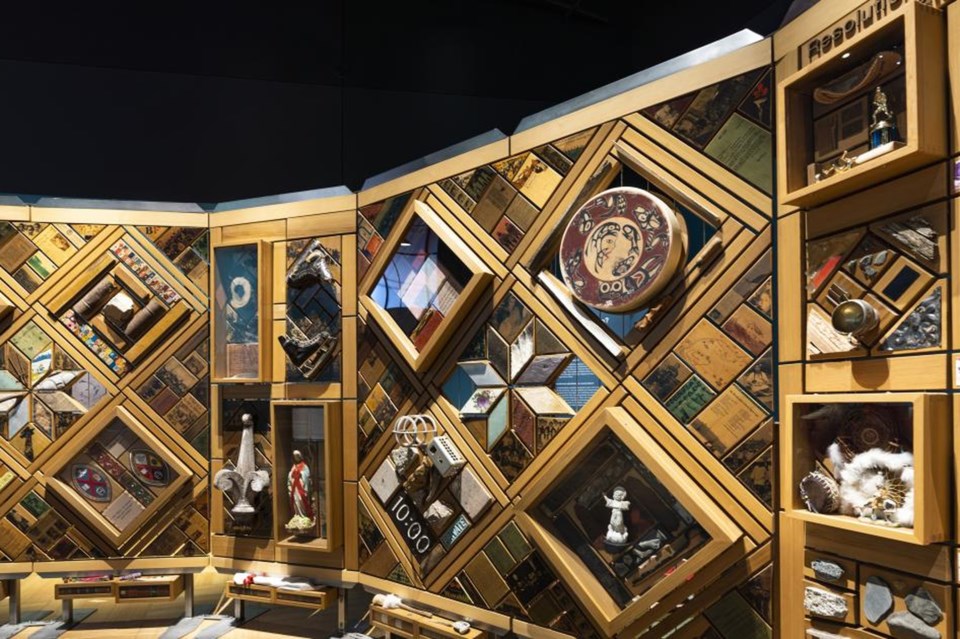Flin Flon's exhibit of a replica Witness Blanket will open next week at City Hall.
The exhibit will officially get underway June 11, but an initial event took place June 6 - a presentation of a documentary film made during the creation of the original Witness Blanket, called “Picking Up the Pieces: The Making of the Witness Blanket”. That film was screened at Hapnot’s Dorothy Ash Theatre.
The official opening of the Witness Blanket exhibition will be held June 11 at Flin Flon City Hall, located within council chambers. The exhibit, a replica of the famed exhibit that was featured at the Canadian Museum for Human Rights in Winnipeg, will be free to the public and will be open until July 22.
The Witness Blanket is a large-scale piece of artwork, consisting of hundreds of items found and reclaimed from former residential school sites across Canada. The items are combined within a cedar frame collage-style and presented as a history lesson to show the impact left behind by the schools. Kwakwa̱ka̱ʼwakw artist Carey Newman, whose family members were taken to residential schools as children, created the project in 2013 and 2014, using hundreds of different items including books, letters, photos, art and other artifacts from 77 different communities across Canada.
“The blanket is a universal symbol of protection. For many of us, it identifies who we are and where we’re from. We wear blankets in ceremony and give them as gifts. Blankets protect our young and comfort our elders,” reads the project’s website.
“The Witness Blanket is a large-scale work of art inspired by a woven blanket. It contains hundreds of items. They were reclaimed from residential schools, churches, government buildings and traditional and cultural structures from across Canada. It stands as a national monument to recognize the atrocities of the Indian residential school era. It honours the children and the survivors. It symbolizes ongoing reconciliation.”
The number for the National Residential School Crisis Line is 1-866-925-4419. The line is open 24 hours per day and is meant to provide support for people affected by residential schools.




